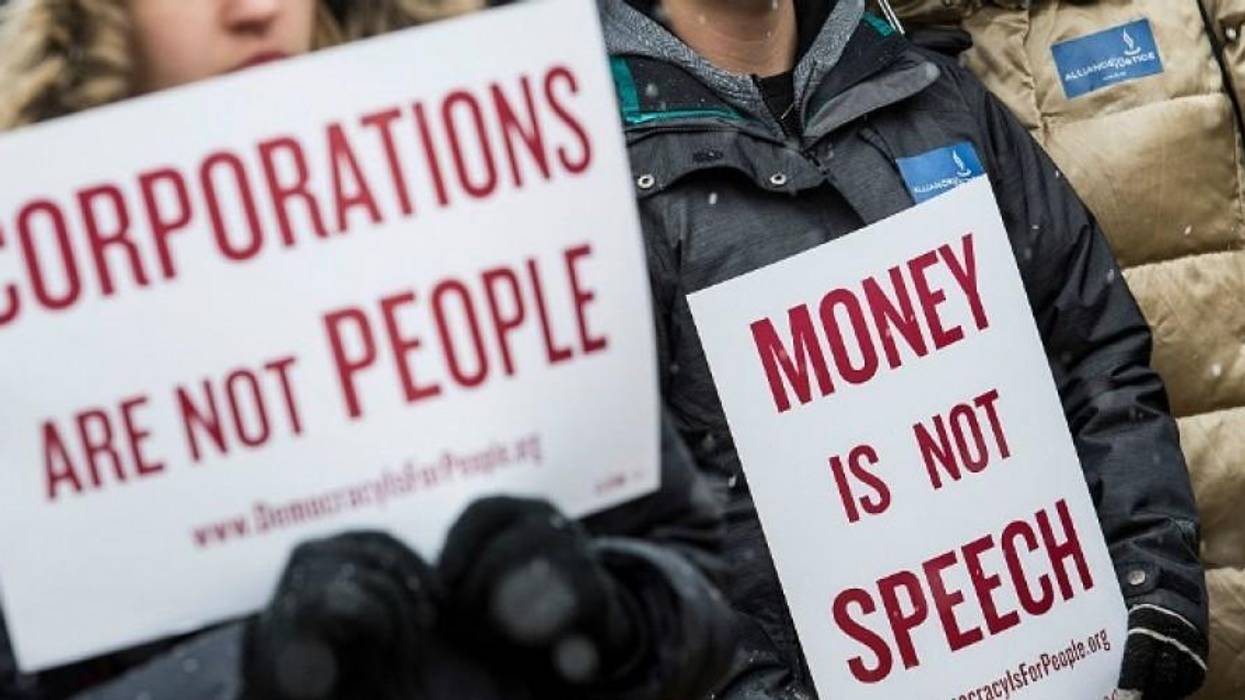As the former president of his state's Senate, Morse knows firsthand that gun-rights advocates "feel very passionately" about their issue. Passion counts for a lot in politics," says Morse. We have not been able to generate the same passion on the side of common sense."
Nobody can attest to that more eloquently than Morse. In 2013, shortly after another disturbed young man opened up on a Denver suburban theater audience in 2012, killing 12 and injuring 70, he helped shepherd a package of gun-control measures through Colorado's legislature. Five months after the bills passed, Morse was out of a job, one of two state senators ousted in a recall campaign ramped up by gun rights enthusiasts.
Both sides of the gun debate applied plenty of money to the highly symbolic race, and while it's impossible to get a true handle on the spending because of the involvement of dark-money groups, whose bottom lines are never made public, there's some indications that the gun-control forces may even have had the spending advantage. Morse says the key factor was not the amount of money but the strategy that determined when and how it was spent.
A $350,000 infusion from billionaire gun-control advocate Michael Bloomberg less than a month before Election Day was "way too little, way too late," said Morse. He identified the key contribution as a much smaller amount that gun rights advocates paid to get signatures on the petition that made Morse's recall possible. "They threw in $60,000," said Morse. "You pay $5 for a signature. Boom. Done." In some cases, according to paperwork filed with the Colorado Secretary of State's office by the El Paso Freedom Defense Committee, which was gathering the signatures, the remuneration wasn't in cash. Of the more than $61,000 collected by the group over a period of several months, most were in-kind donations, including rounds of ammunition for door prizes and an "AR-15 foregrip."
Thousands of signatures on the petitions were tossed out as forgeries and Morse is convinced his campaign could have found more, but "I ran out of time," he says. The bottom line is that "The right amount of money at the right time can do amazing things," says the ex-lawmaker, who now runs an accounting practice in Denver.
There's no question that the gun lobby has a proven record of applying its bucks with a bang: Pro-gun groups have massively outspent those who favor stricter gun control on a federal level. According to figures compiled by the nonpartisan Center for Responsive Politics, the National Rifle Association and its allies have made $37.3 million in contributions to candidates for Congress and the White House over the past 26 years. The total for gun-control groups over the same period: $2.4 million. The disparity is the same on the lobbying front: CRP's data shows that gun-rights organizations routinely outspend those on the other side of the debate by a factor of 10.
Nor is it coincidental that the two men who have most to say about what gets to the floor of the two congressional chambers, Senate Majority Leader Mitch McConnell (R-KY) and House Speaker Paul Ryan (R-WI) were among the biggest recipients of pro-gun money in the last election cycle.
Less obvious (because it's a lot harder to track) but at least as important: The NRA's activity in state capitals, where most of the laws governing firearms are enacted. An analysis of the campaign finance database in Florida, where Omar Mateen was easily able to acquire the high-power weaponry he used to gun down patrons at Orlando's Pulse nightclub this week, shows the NRA spent more than $4.3 million trying to influence statewide and state legislative elections in Florida during the past 20 years. Aside from multiple five-figure contributions to party political committees, the most eye-popping amounts go to marketing and direct-mail firms, another hallmark of the NRA's grass-roots strategy. The analysis of the Florida campaign finance data was done for BillMoyers.com by Bob Lannon, a civic hacker who runs Influence USA, an all-volunteer project that aims to put state and local campaign finance and lobbying numbers into a national database.
"We cower and follow the path of least resistance." -- John Morse
Morse attests to the impact of such efforts. Every time a gun bill would come up in Colorado, "I probably got 7,000 emails," said the former senator, who represented about 145,000. There was a catch: Of those emails "maybe 150" had been sent by Morse's actual constituents. But the former Senate president said it was a distinction that not all of his colleagues appreciated. When the Colorado legislature took up gun-control legislation, Morse said, "the NRA did a great job of getting people to show up. They drove around the Capitol for four hours honking horns. They had people willing to do that."
Meanwhile, on the gun-control side of the issue, "I got meh, maybe 25 emails," Morse recalls, adding: "Even though the NRA represents a small part of the population, they do so very loudly and very effectively." That impresses people who regularly have to seek reelection. "So we cower and follow the path of least resistance," he says.
Morse speaks as a gun owner. A former Colorado Springs cop, he says he keeps a loaded service revolver at home just in case he ever has to defend himself. But he feels as though he's more qualified than most to do that. "I can outshoot 99.1 percent of the people on the planet," he said. "Seriously. I am a crack shot." None of that helped protect him from the reality of the political passion gap. In that recall election Morse lost by 319 votes, he says: "Eighty percent of the registered voters in my district did not cast a ballot."
Despite its success in getting rid of him, the NRA has been unable to remove the laws Morse helped enact. He doesn't take too much comfort in that. "Those bills weren't really that profound," he said, although one does limit the size of magazines in Colorado. "What I say to people on my side is, 'C'mon. We've got to show up and stand up,'" Morse says. "Most of the country agrees with us. We need to convince our people to show up and take a stand."



